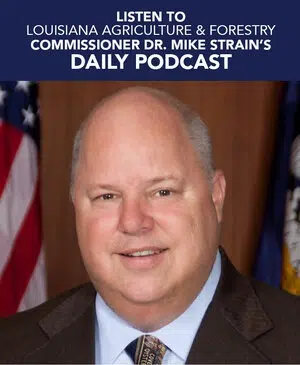
May 20, 2010 - Gulfport, MS, USA - Oil and dispersant on the water's surface in the Gulf of Mexico on May 20, 2010, a month after the Deepwater Horizon oil spill began. (Credit Image: © James Edward Bates/TNS/ZUMA Wire)
Today marks 15 years since the Deepwater Horizon Oil Spill began off the Louisiana coast.
It was on April 20th, 2010, that the Deepwater Horizon oil platform exploded, spewing 4.9-million barrels of toxic oil into the gulf.
11 people were killed and 17 others injured, along with a countless number of dolphins and other marine wildlife.
The oil flowed for 87 days, and the oil well was finally sealed on September 19th, almost exactly five months after the explosion.
It is the largest marine oil spill in the history of the petroleum industry and one of the biggest environmental disasters ever.
Lt. Gov. Billy Nungesser was the president of Plaquemines Parish back then.
He remembers not just the explosion and oil spill, but also the sheer chaos in the response.
“We brought our ambulances down and found out later they kept them on the boat all night and took them to (Port) Fourchon, several hours away,” says Nungesser. “And I learned long after to keep them isolated from the public.”
Nungesser says he found himself fighting BP and the consultants more than fighting the oil.
“The people on the ground that were there to help us actually prevented the fishermen and the local people from really making an all out effort to put the right boom out there to secure the oil from getting into many of the main passes,” Nungesser says.
Nungesser says he remembers a lack of leadership on the ground in the wake of the oil spill, which inspired him to eventually run for lieutenant governor.
“I didn’t feel like enough people were in their face calling it like they saw it,” says Nungesser. “(It was) a tragedy in itself that we didn’t get people saying, ‘What can we do to help?'”
Nungesser recalls that as crews were working feverishly to vacuum oil that had spewed into the water and threatening the coast, the Coast Guard was busy checking registrations and insurance as people were loading their boats onto trailers.
Nungesser says that wasted a lot of time that could have gone to rescuing people and marine wildlife.
“When the (United) Cajun Navy goes out the rescue people, you don’t go check for registration. You just go do the job,” says Nungesser. “Why were they trying and stop us from rescuing animals (and) pelicans, and why would they try and stop us from picking up the oil? I never understood that.”
The U.S. government found BP to be mostly at fault, along with big rig operator Transocean and contractor Halliburton.
BP pleaded guilty to 11 counts of manslaughter, a felony count of lying to Congress and two misdemeanors.
BP has been forced to pay more than $65 billion in fines and cleanup costs.
“To relive some of the rescues of animals and fighting to get equipment, and then of course fighting for the fair justification for damage to the coast into the oyster and shrimp, and the people that have been making their living off of the waters for many generations — it was quite an experience, a memory we hope we don’t have to relive again,” Nungesser says.







Comments